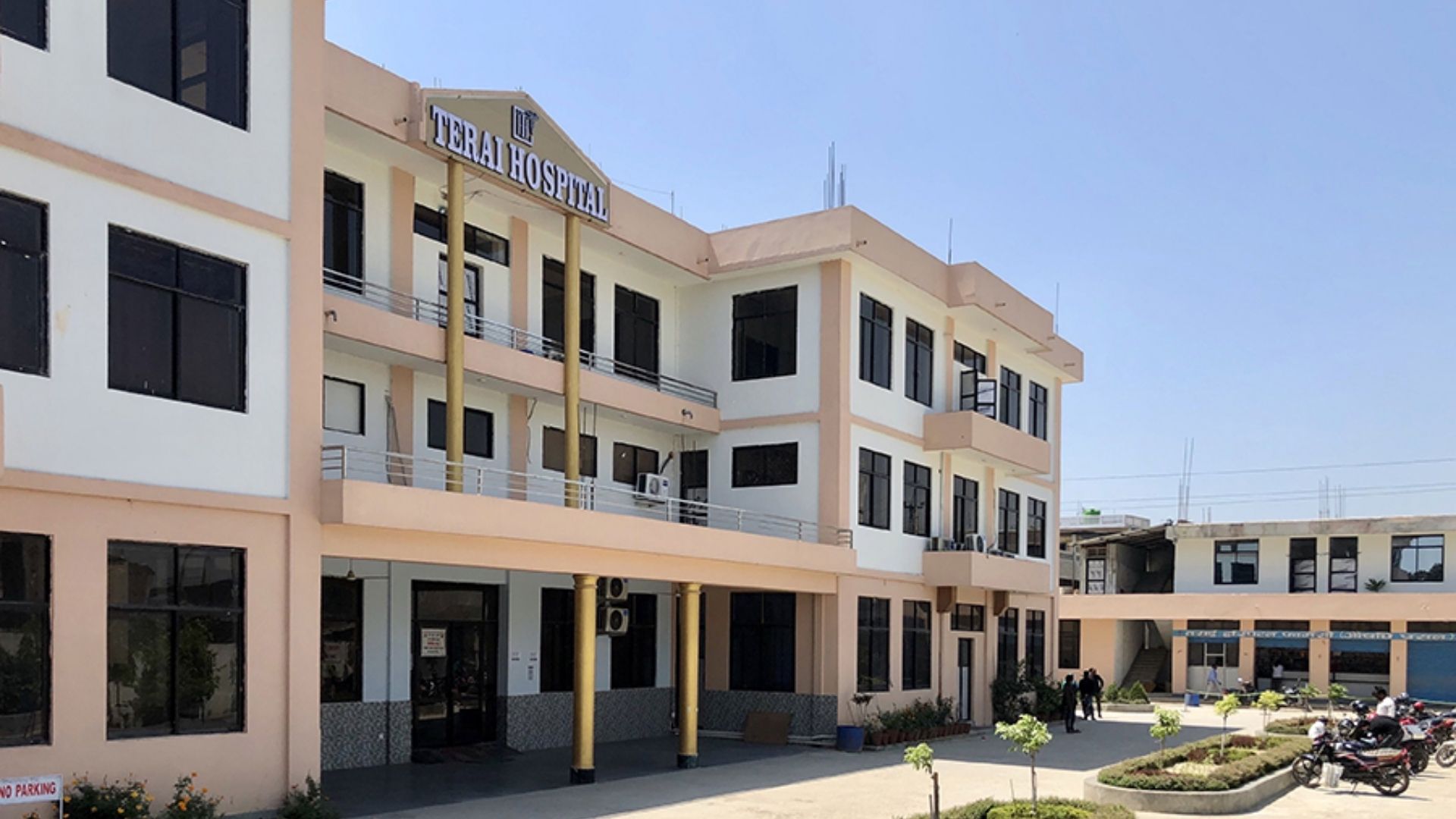Overview
PCL Nursing at Nepal College of Nursing and Health Science (NCNHS), Birgunj
If you are a science student planning a nursing career in Nepal, PCL Nursing at Nepal College of Nursing and Health Science (NCNHS), Birgunj offers a clear, structured path to the Staff Nurse role under CTEVT.
The program runs for three years, follows national nursing standards, and operates in a hospital-managed setting.
Students and parents often ask about curriculum depth, clinical exposure, admission steps, and future roles. This guide answers those questions in plain language.
Overview
PCL Nursing at NCNHS prepares learners for safe, entry-level clinical practice in hospitals, birthing centers, and community health settings. The college sits in Birgunj-13, Parsa, and is managed by Terai Hospital.
Teaching combines theory, skills-lab practice, and supervised clinical postings, meeting CTEVT requirements for assessment and certification.
Here’s what you will study across three years—core sciences first, then progressively advanced nursing care, and structured clinical exposure.
Highlights
-
Location: Birgunj-13, Parsa, Nepal
-
Affiliation: CTEVT
-
Program: PCL Nursing (Staff Nurse)
-
Duration: 3 years
-
Intake: 40 seats (as shared)
-
Scholarships: Up to 10% of seats (maximum 3 free scholarship seats, as shared)
-
Management: Terai Hospital, Birgunj
-
Focus: Patient safety, infection prevention, ethical practice, and documentation

Curriculum Details
Students learn foundational science, professional conduct, and practical procedures before advancing to specialized areas of care.
Year-wise flow
-
Year 1: Fundamentals of Nursing, Anatomy and Physiology, Microbiology basics, Pharmacology basics, Communication, Professional conduct, Infection prevention, Nursing calculations
-
Year 2: Adult Health Nursing (medical-surgical), Maternal and Newborn Nursing, Pediatric Nursing, Nutrition, Health education methods, Record-keeping and reporting
-
Year 3: Psychiatric Nursing, Community Health Nursing, Family health, Epidemiology basics, Leadership in nursing units, Clinical decision-making, Preparation for CTEVT board exams
Practice components
-
Skills-lab sessions with return demonstrations on standard checklists
-
Clinical rotations under supervision in relevant units
-
Case write-ups, nursing care plans, bedside procedures, and handovers
-
Internal assessments, practical examinations, and final CTEVT evaluation
Objectives
-
Build safe beginner-level nursing competence for ward and community settings.
-
Strengthen ethical awareness, patient communication, and teamwork
-
Develop accurate documentation, calculation, and reporting habits
-
Prepare graduates for licensure and entry-level employment pathways
Scope
Graduates serve in hospitals, primary health centers, birthing centers, and community programs. Service areas include medical-surgical wards, obstetrics and gynecology, pediatrics, outpatient clinics, vaccination outreach, and health promotion activities. Graduates may also pursue further studies based on regulator rules and personal goals.
Not sure where this qualification can lead you? The next section maps likely roles and growth points.
Learning Outcomes
-
Provide safe bedside care using standard procedures and aseptic technique
-
Perform ward tasks such as vital-sign monitoring, medication administration as per protocols, IV line assistance, and wound care under supervision
-
Assist in antenatal, intranatal, and postnatal care; support essential newborn care
-
Apply therapeutic communication with patients and families
-
Maintain clear records, reports, and handovers that support continuity of care
-
Follow ethics, patient safety principles, and institutional guidelines
Skill Development Modules
-
Clinical Skills: Bed making, catheter care, injections, IV cannulation assistance, wound dressing, oxygen therapy support
-
Maternal-Newborn: Antenatal assessment support, labor room assistance, immediate newborn care, breastfeeding support
-
Pediatric: Growth monitoring, vaccine schedules support, caregiver education
-
Community: Home visits support, health education, screening camps under supervision
-
Safety and Quality: Infection prevention, biomedical waste handling, incident reporting
Teaching Methodology
-
Theory classes with concept-focused lessons and case examples
-
Skills-lab demonstrations followed by student return demonstrations
-
Supervised clinical rotations with pre/post-conference briefings
-
Internal tests, OSCE-style practical checks, and feedback sessions
-
Study counseling and parent/guardian interaction at scheduled points
Worried about practical readiness? Skills-lab practice and structured supervision help bridge classroom learning and ward tasks.
Admission Requirements
NCNHS follows the CTEVT admission policy for PCL Nursing. Applicants should rely on the current-year official notice.
-
Eligibility: As prescribed by CTEVT for the intake year
-
Application: Submit the form within published dates
-
Entrance Exam: Sit for the CTEVT entrance as scheduled
-
Selection: Admission by merit list and counseling
-
Documents: Academic transcripts, character certificate, citizenship/ID, photos, and other papers listed in the intake notice
-
Deadlines: Complete verification and fee formalities within stated timelines
Applicants are advised to keep originals and certified copies ready for verification.
Career Opportunities
Entry-level roles include Staff Nurse positions in hospitals, birthing centers, and primary care units. Nurses contribute to inpatient wards, OPDs, immunization outreach, and health education.
Early responsibilities usually focus on bedside procedures, vital-sign monitoring, basic medication tasks under unit protocols, and coordinated patient support.
Graduates may later build toward supervisory roles or advanced study depending on regulator pathways and institutional policies in Nepal.
Scholarships and Financial Aid
-
Scholarship seats: Up to 10% of seats (maximum 3 free scholarship seats out of 40, as shared)
-
Basis: Merit and categories in line with current-year rules
-
Process: Follow the scholarship section of the CTEVT/college notice and submit required documents by deadline
Students should review each intake circular for current categories and instructions.
Why Choose This Course?
-
Clear path to the Staff Nurse role under CTEVT standards
-
Hospital-managed setting that supports clinical scheduling and supervision
-
Skills-lab structure that builds confidence before ward posting
-
Emphasis on safety, ethics, documentation, and patient communication
-
Supportive routines for counseling, parent/guardian interaction, and exam readiness
-
Birgunj location with access to a major healthcare hub in Madhesh Province
Conclusion
PCL Nursing at NCNHS, Birgunj offers a structured three-year path for learners who seek practical nursing skills and entry-level roles in Nepal’s health system. The program follows CTEVT guidelines, maintains supervised clinical exposure, and upholds discipline and ethical practice.
Prospective students should track the official admission calendar, sit for the entrance examination, and prepare documents early. Parents and guardians can engage during scheduled interactions to support steady progress from classroom to clinic.

















